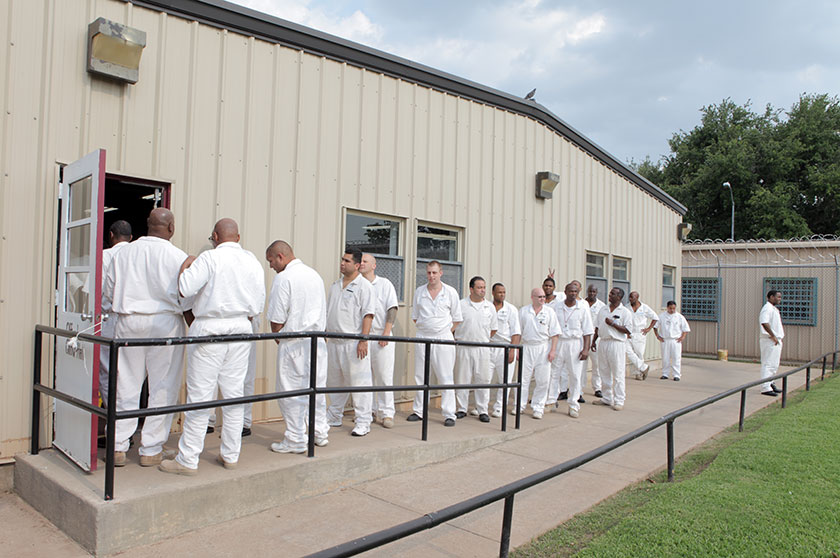The following article originally appears in the Summer 2018 Men's edition of Inside Journal®, a quarterly newspaper printed by Prison Fellowship® to correctional facilities across the country.

If you have kids, you probably know education is critical to their success in life. Though it may be difficult for incarcerated parents to be involved from behind bars, it is still crucial for you to do so.
Studies show that kids with a father in prison are more likely to have a hard time in school or even drop out. You can help your child avoid these struggles. Even from behind bars, you can have a positive impact on your child's learning. (If you don't have kids, or your kids are grown, you can apply some of these same tips to grandkids, nieces, nephews, or other young people you can influence.)
SET AN EXAMPLE
Being involved starts with being a positive role model. "It's hard to be what you didn't see," says Dr. Greg Austen, former director of national programming at the National Fatherhood Initiative, an organization that encourages fathers to be involved, responsible, and committed.
Fathers' actions and behaviors heavily influence their children's views. Show your child the value of education by getting your GED, enrolling in classes available at your facility, or taking a correspondence course.
It doesn't matter if you haven't hit the books in the past. It's never too late to start. If your children know you're learning, too, it will show them that you value education in your life—not just in theirs.
Education doesn't have to be formal, either. Demonstrate the value of self-guided learning. Check out books from the library. Take notes. Read the same books as your child and discuss them through letters or during calls or visits.
COMMUNICATE WITH EDUCATORS AND CAREGIVERS
Stay informed about what your children are learning and how they're performing in school. Depending on your facility, you may be able to call in to parent-teacher conferences covering your child's academic progress. You can request that your child's school send you copies of report cards or other important notices. Some schools might send you advance copies of your children's assignments so you can see what they're working on. If your children can send mail through a caregiver or family member, ask them to send recent schoolwork.
Communication goes both ways, too. If you hear that your child is struggling to learn or follow the rules at school, you can encourage your child's caregiver to talk to the teacher and school counselor, explain the situation at home, and come up with positive ways to give your child extra support when needed.
BE A SPIRITUAL LEADER
Kids need guidance when they face struggles at school. They might not understand why they didn't make the football team, or they might struggle with a learning disability. Situations like these often lead to deeper conversations about what matters most—including spiritual things.
You can be a spiritual leader. You can do things like memorize an encouraging verse from the Bible (such as John 3:16) with your children, or talk to them honestly about the difference God is making in your life. Your interest and investment in their spiritual life lets them know they can talk to you in difficult times.
Be careful to ensure that your relationship with your children's caregiver is as peaceful as possible so that you keep communication lines open. Encourage the caregiver to bring your children to a church with a great youth program, so they can be influenced by others who might share your values. It takes humility to admit you need others to help guide your child's spiritual growth, but your child is worth it.
BE THE DAD YOUR CHILD NEEDS
Fathers play a unique and irreplaceable role in their children's lives. According to Dr. Austen, that role includes being a guide—helping children find their way in a world that can be disorienting, overwhelming, and discouraging.
With a parent in prison, your child's world may be especially challenging. Your child might be told that they will never amount to anything, or that they are destined to go to prison themselves. You can help by sending the opposite message. Tell your children that they matter—that they have value, abilities, and potential. If they know you believe in them, it will be easier for them to believe they can succeed.
Parenting from prison is hard. There are challenges at every turn, and regrets about the past might make you doubt whether you can help. But by choosing to be involved in your children's education today, you can show them that you want to be the involved, responsible, and committed father they deserve. And while you can't change your past, you can change your future—and you can help shape theirs.
OTHER ARTICLES YOU MIGHT LIKE
INCARCERATED PARENTS: HOW TO COPE WHEN YOU CAN’T CONNECT
A list of ideas for prisoners on how to address the pain of separation from their children during incarceration.
RAISING CHILDREN WITH A PARENT IN PRISON
As a caregiver, you know the traumatic and emotional impact on the rest of the family when a parent goes to prison. Not only is it difficult for the children, it can also be overwhelming for those of you left to care for the children.